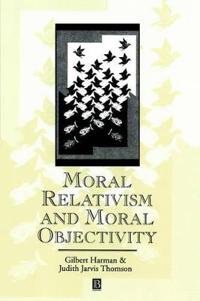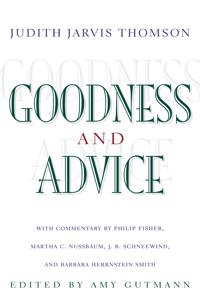Moral relativism and moral objectivity (Häftad)
avJudith Thomson
ISBN: 9780631192114 - UTGIVEN: 199511Do moral questions have objective answers? In this great debate, Gilbert Harman explains and argues for relativism, emotivism, and moral scepticism. In his view, moral disagreements are like disagreements about what to pay for a house; there are no correct answers ahead of time, except in relation t[...]
Rights, Restitution and Risk (Häftad)
avJudith Jarvis Thomson
ISBN: 9780674769816 - UTGIVEN: 1986-07Moral theory "should" be simple: the moral theorist attends to ordinary human action to explain what makes some acts right and others wrong, and we need no microscope to observe a human act. Yet no moral theory that is simple captures all of the morally relevant facts. In a set of vivid examples, s[...]
Goodness and Advice (Häftad)
avJudith Jarvis Thomson
ISBN: 9780691114736 - UTGIVEN: 2003-01How should we live? What do we owe to other people? In "Goodness and Advice", the eminent philosopher Judith Jarvis Thomson explores how we should go about answering such fundamental questions. In doing so, she makes major advances in moral philosophy, pointing to some deep problems for influential [...]






